
Four or five hours into Atomic Heart, it swings into one of many seamless first-person cutscenes. A man points a gun at you, babbles something about a giant plant, and your protagonist gruffly swears, complains and sets about fetching the thing to blow up the thing. You return with explosives, which are ignited by a cigarette while your character calls the plant a “fuckbag”, and the scientist dies afterwards. I didn’t know whether to laugh or cry.
A lot of Atomic Heart will leave you grasping for purchase, as it freewheelingly veers from enormous set pieces to endless fetch quests, as critiques of Russian exceptionalism rub up against a protagonist who calls robots “fat turds” and a script written with the help of a swearing thesaurus. You’ll gaze into the eerie, porcelain face of an android and marvel at how well the aesthetic captures this unsettling world of humanoid robots, and then be grossed out by a vending machine begging you to “squirt your polymer in me”.
This is one of the oddest big-budget games I’ve played in a long time, filled with as many good ideas as bad ones, like it’s been made without a filter and everything went in. The game’s influences are numerous – Westworld, Fallout, Arkane’s Prey – but the one that looms above them all is BioShock.
Atomic Heart’s narrative-focused opening is like a communist version of Columbia and the grandeur of its sprawling research institute, a utopia gone wrong showcasing the best of retro-futurist Soviet robotics, makes for one breathtaking vista after another. But the influence runs far deeper than aesthetic.
This story is from the {{IssueName}} edition of {{MagazineName}}.
Start your 7-day Magzter GOLD free trial to access thousands of curated premium stories, and 9,000+ magazines and newspapers.
Already a subscriber ? Sign In
This story is from the {{IssueName}} edition of {{MagazineName}}.
Start your 7-day Magzter GOLD free trial to access thousands of curated premium stories, and 9,000+ magazines and newspapers.
Already a subscriber? Sign In

A New Dawn - The rise, fall and rise again of PC Gaming in Japan
The so-called 'Paso Kon' market (ie katakana's transliteration of 'Pasonaru Computa') in Japan was originally spearheaded in the 1980s by NEC's PC-8800 and, later, its PC-9800.
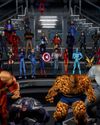
MARVEL: ULTIMATE ALLIANCE
Enter the multiverse of modness.
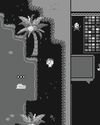
SLIDES RULE
Redeeming a hated puzzle mechanic with SLIDER
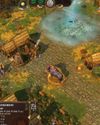
GODS AND MONSTERS
AGE OF MYTHOLOGY: RETOLD modernises a classic RTS with care

PHANTOM BLADE ZERO
Less Sekiro, more Wo Long: Fallen Dynasty

STARR-MAKING ROLE
Final Fantasy XVI's BEN STARR talks becoming a meme and dating summons
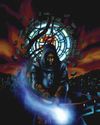
THIEF GOLD
Learning to forgive myself for knocking out every single guard.

HANDHELD GAMING PCs
In lieu of more powerful processors, handhelds are getting weirder
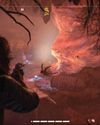
FAR FAR AWAY
STAR WARS OUTLAWS succeeds at the little things, but not much else shines
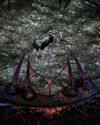
FINDING IMMORTALITY
Twenty-five years on, PLANESCAPE: TORMENT is still one of the most talked-about RPGs of all time. This is the story of how it was created as a ‘stay-busy’ project by a small team at Black Isle Studios